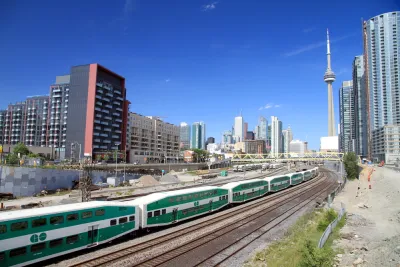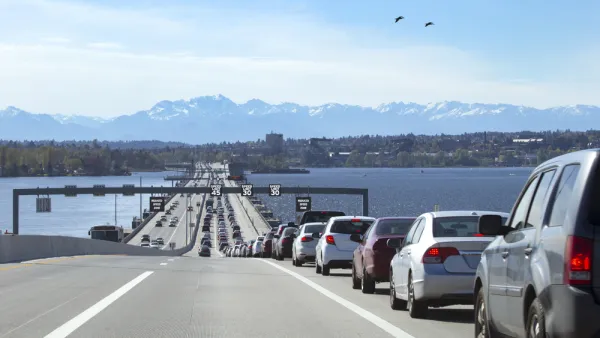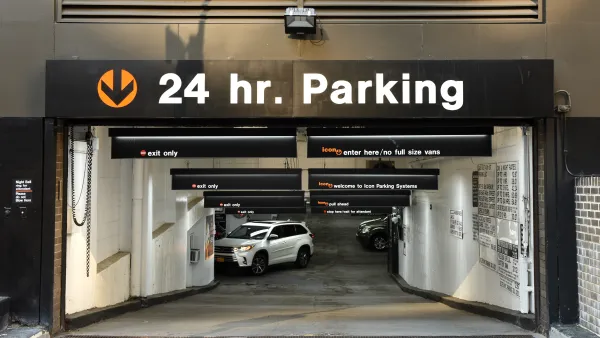"Next Stop Equity" evaluates the fairness of public transit service allocation and pricing in the Toronto, Canada region, and recommends policy reforms to better achieve social equity objectives.

Next Stop: Equity – Routes to Fairer Transit Access in the Greater Toronto and Hamilton Area, a York University study identifies ways to understand and evaluate transit equity so transportation and housing policy decisions can benefit the greatest number of transit users. Instead of focusing on equality, where everyone is treated the same, transit equity recognizes that people have different needs, situations and challenges that require different responses.
Widening gaps between affordable housing and employment opportunities have converged to make transit service disparities especially severe in suburban areas. Overall, the historic lack of transit investment means many living in the “inner ring” suburbs of Toronto must either have access to a car or find a home somewhere else.
Transit, as target for substantial investment by multiple levels of government, has huge potential to balance out social inequalities. It can connect underserved neighbourhoods to employment centres, enhance mobility and utilize subsidies and other fare innovations to encourage ridership. Transit is quite literally a vehicle for providing access to the community, economy and services that make living a fulfilling life possible.
But the discussion needs to depart from the current situation, where politicians fight over limited funding, change plans mid-stream and build new lines that continue to primarily assist commuters traveling to and from downtown at rush hour.
Research for Next Stop: Equity relied on extensive stakeholder consultations, case study research and an analysis of fares across the 10 regional transit agencies. The study makes 18 recommendations for achieving a more equitable regional approach including:
- developing a GTHA-specific definition of equity that recognizes the diverse needs of the region’s residents, to guide future planning;
- creating a consistent regional framework for transit fares, including discounted passes for low-income residents and more broadly defined groups of students;
- implementing land use planning policies to acknowledge and begin to counteract the displacement of residents created by rising property values along new or improved transit lines;
- ensuring new development near transit stations does not result in a net loss of affordable apartments or displace vulnerable residents;
- augmenting service to employment destinations, especially those trips made in off-peak hours, through a further analysis of evolving commuting patterns, especially outside the downtown core;
- enhancing public consultation techniques, especially in lower income and suburban communities; and,
- improving customer service, including vehicle and station comfort and cleanliness.
FULL STORY: Next Stop: Equity – Routes to Fairer Transit Access in the Grater Toronto and Hamilton Area

Analysis: Cybertruck Fatality Rate Far Exceeds That of Ford Pinto
The Tesla Cybertruck was recalled seven times last year.

National Parks Layoffs Will Cause Communities to Lose Billions
Thousands of essential park workers were laid off this week, just before the busy spring break season.

Retro-silient?: America’s First “Eco-burb,” The Woodlands Turns 50
A master-planned community north of Houston offers lessons on green infrastructure and resilient design, but falls short of its founder’s lofty affordability and walkability goals.

Test News Post 1
This is a summary

Analysis: Cybertruck Fatality Rate Far Exceeds That of Ford Pinto
The Tesla Cybertruck was recalled seven times last year.

Test News Headline 46
Test for the image on the front page.
Urban Design for Planners 1: Software Tools
This six-course series explores essential urban design concepts using open source software and equips planners with the tools they need to participate fully in the urban design process.
Planning for Universal Design
Learn the tools for implementing Universal Design in planning regulations.
EMC Planning Group, Inc.
Planetizen
Planetizen
Mpact (formerly Rail~Volution)
Great Falls Development Authority, Inc.
HUDs Office of Policy Development and Research
NYU Wagner Graduate School of Public Service




























